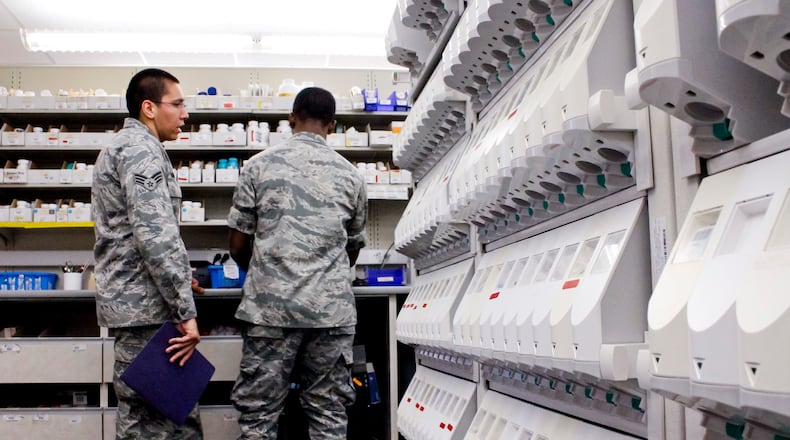Austin Carrigg, CEO of Exceptional Families of the Military, a nonprofit advocate for those enrolled in the military’s Exceptional Family Member Program, said they have heard concerns about medication shortages since the shutdown began.
The nonprofit serves more than 15,000 military families through peer-to-peer support groups and has heard from installations across the U.S. and as far as Germany that they’ve had a pharmacist tell them their medication could not be filled because of the shutdown.
“The reality for these families is that many already struggle financially from the added costs associated with being an EFMP family, and many are unprepared to cover the co-pays they will need for lifesaving medical treatments,” Carrigg said. “What we are likely to see moving forward are large numbers of families who have not had to pay co-pays, be pushed into the network, and suddenly find themselves forced to pay or go without what is often a lifesaving medication.”
Stars and Stripes reviewed the messages but agreed not to name people or provide specific details about their situations.
The Defense Health Agency, which oversees the military’s health care system and its pharmacies, disagreed in a statement Friday that the shortages are due to the government shutdown. Instead, the agency’s public affairs office said it’s because of the start of the new fiscal year that began Oct. 1.
“DHA continues to fund pharmacy operations, procurement and pharmaceutical fulfillment despite the lapse in appropriations. Every year during fiscal year closeout there may be a pause in purchasing, but all military pharmacies are aware that they may continue to order to ensure they maintain their prescription drug stock to support all TRICARE beneficiaries during this period,” DHA said in a statement.
The government shutdown, which began Oct. 1 when Congress did not pass legislation to keep the federal government funded, has had a variety of impacts on the military and its family members. Though the Trump administration has found ways to keep paychecks going to service members, many military spouses work for the federal government and have not received a paycheck.
The Military Family Advisory Network, which provides food assistance among other support for military families, said it has already had more than 50,000 verified families register for help during the government shutdown.
“Even before the shutdown, 1 in 4 military families struggled to put food on the table,” Shannon Razsadin, CEO of the advisory network, wrote Thursday in an email to supporters. “Now, many are missing paychecks; unexpectedly paying medical costs out of pocket; or without housing due to stop move orders, paying double rent or sleeping in temporary spaces they can’t afford.”
Families told Carrigg that pharmacists and medical providers have been helpful in finding prescriptions when there is a shortage, but the cost of a co-pay can be surprising, she said. For one family, a three-month supply of a child’s medication at an off-post pharmacy was $550, she said.
Most who responded had concerns about medications and supplies for chronic conditions such as diabetes. However, another family said they had to go outside the base for an antibiotic because the strength available on post was not strong enough.
“These aren’t always medications for ongoing medical conditions, but infections that anyone, including our service members, can contract, but that we would be unable to treat. This incident has sent up red flags for us. How will patients in the inpatient setting get the medication they need as this continues?” Carrigg said.
About the Author
